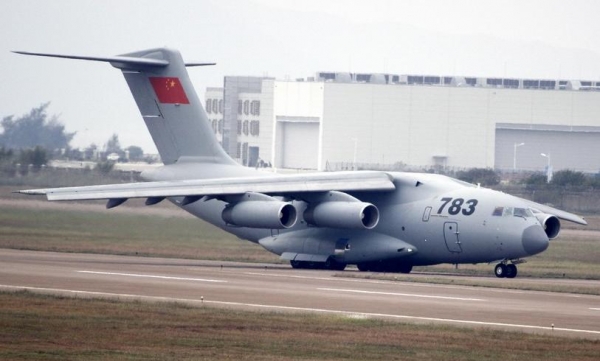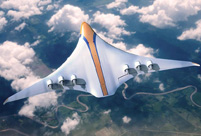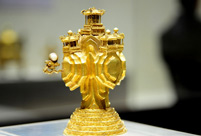


(File Photo)
2016 marks the starting year of China's 13th Five-Year Plan. The plan was officially approved at the recently concluded Two Sessions meetings, which means that there is now a blueprint for China's development over the next five years, CCTV reported on Sunday.
According to the plan, China's large transportation aircraft, Y-20, will finish test flights in 2016 and be delivered in bulk to the PLA before the end of this year, according to CCTV reports.
In addition, as part of the country's space lab program, China will launch the Shenzhou-11 spacecraft this year, which will carry two astronauts into space and dock with the Tiangong-2.
Tiangong-2 will conduct 14 experimental projects covering nine different scientific areas, making it the manned spacecraft with the most on-board tasks and representing a major change in China's manned spaceflight.
Over the past five years, China's nuclear power expertise saw rapid progress. In addition to generating power through clean energy, there are even new methods for overcoming cancer.
Zhou Yongmao, a scholar at the Chinese Academy of Engineering, said that the world's smallest practical nuclear reactor has been transformed into a neutron irradiator, which is already being used in hospitals. The irradiator does not damage skin, but it can kill cancer cells. At present, the neutron irradiator has helped to cure several patients who suffered from malignant melanomas. This technology will be expanded during the 13th Five-Year Plan.
Other forthcoming plans include the maiden flight of China's first domestically produced large aircraft, C919, the first test flight of the new generation of carrier rockets, Long March VII and Long March V, and the completion of the world's largest radio telescope, FAST.
 Thai most beautiful transgender Nong Poy release new photos
Thai most beautiful transgender Nong Poy release new photos Now and then photos of Shanghai Jiaotong University
Now and then photos of Shanghai Jiaotong University Is this what air travel will look like in 2050?
Is this what air travel will look like in 2050? Aerial view of watermelon terraces in S China's Baise
Aerial view of watermelon terraces in S China's Baise Traditional wedding of a post-80s Tibetan couple
Traditional wedding of a post-80s Tibetan couple Models in cheongsams present classical oriental beauty
Models in cheongsams present classical oriental beauty Second commissioned C28A corvette made by China enters Algerian Navy
Second commissioned C28A corvette made by China enters Algerian Navy Intoxicating Wuyuan in spring
Intoxicating Wuyuan in spring Gold and silver wares of Qing Dynasty exhibited in Shenyang Imperial Palace
Gold and silver wares of Qing Dynasty exhibited in Shenyang Imperial Palace Top 20 hottest women in the world in 2014
Top 20 hottest women in the world in 2014 Top 10 hardest languages to learn
Top 10 hardest languages to learn 10 Chinese female stars with most beautiful faces
10 Chinese female stars with most beautiful faces China’s Top 10 Unique Bridges, Highways and Roads
China’s Top 10 Unique Bridges, Highways and Roads Challenges seen in attracting foreign capital
Challenges seen in attracting foreign capital  Suspected matricide case highlights mental health problems in China’s elite colleges
Suspected matricide case highlights mental health problems in China’s elite colleges  Peering into North Korea from China’s border
Peering into North Korea from China’s border  Cross-Straits ‘diplomatic truce’ still holds
Cross-Straits ‘diplomatic truce’ still holds Day|Week